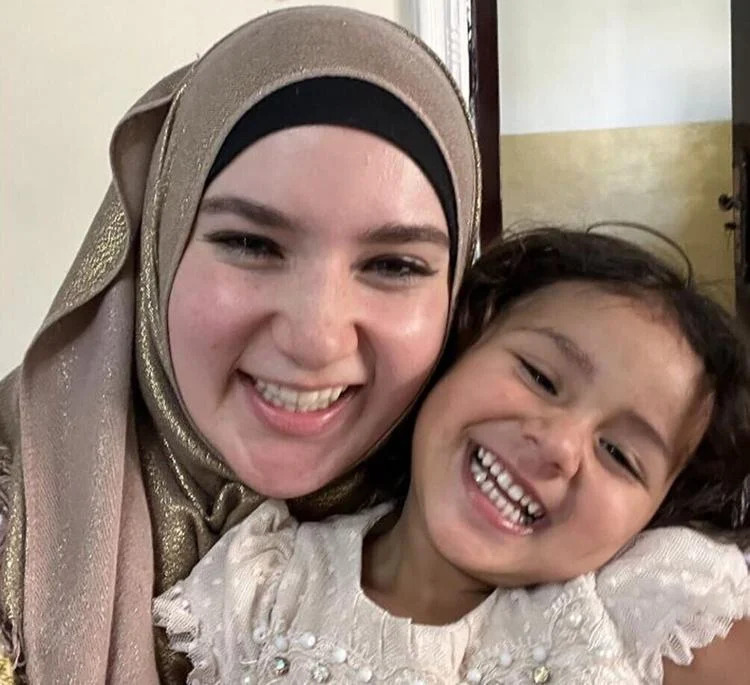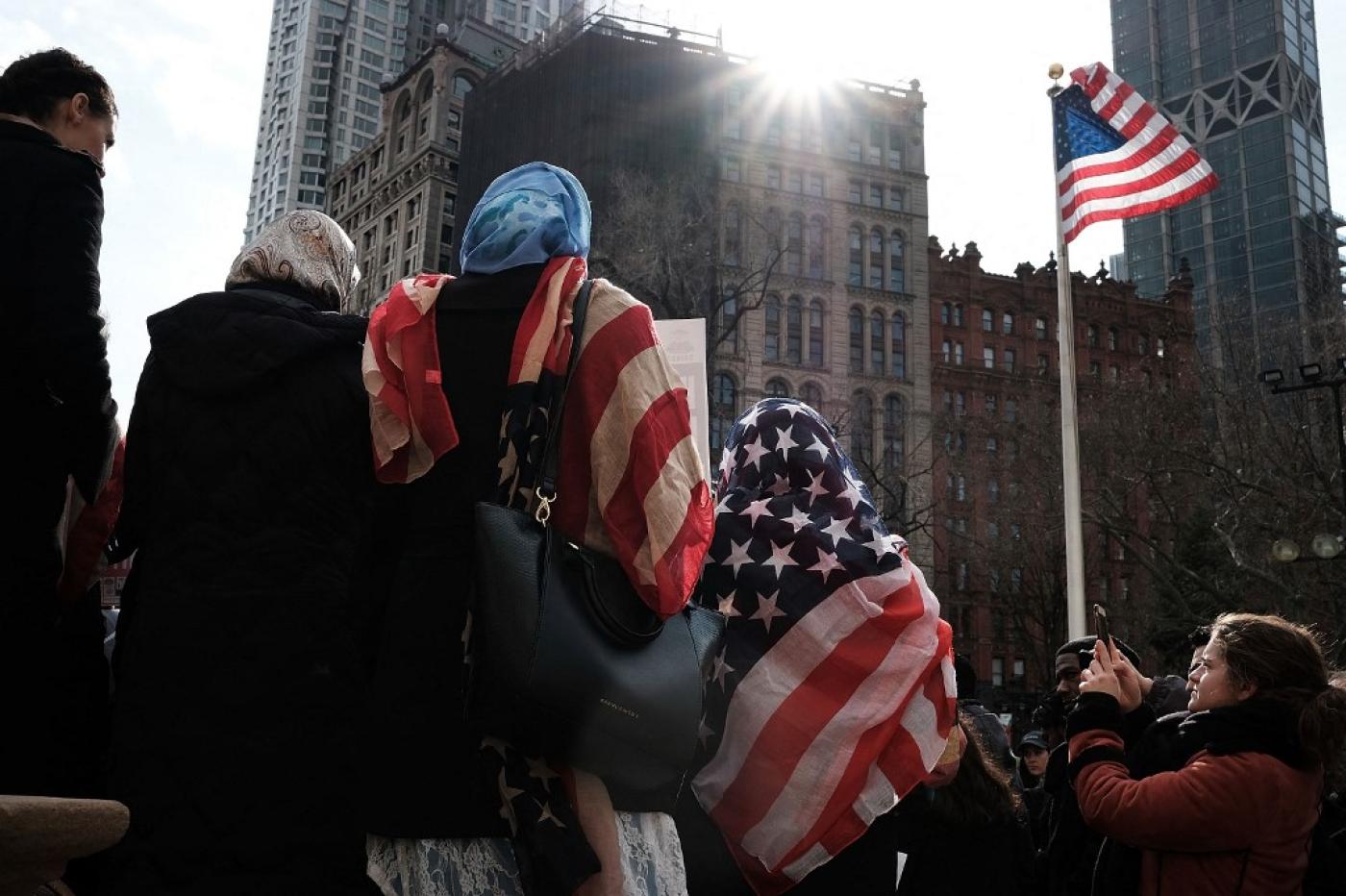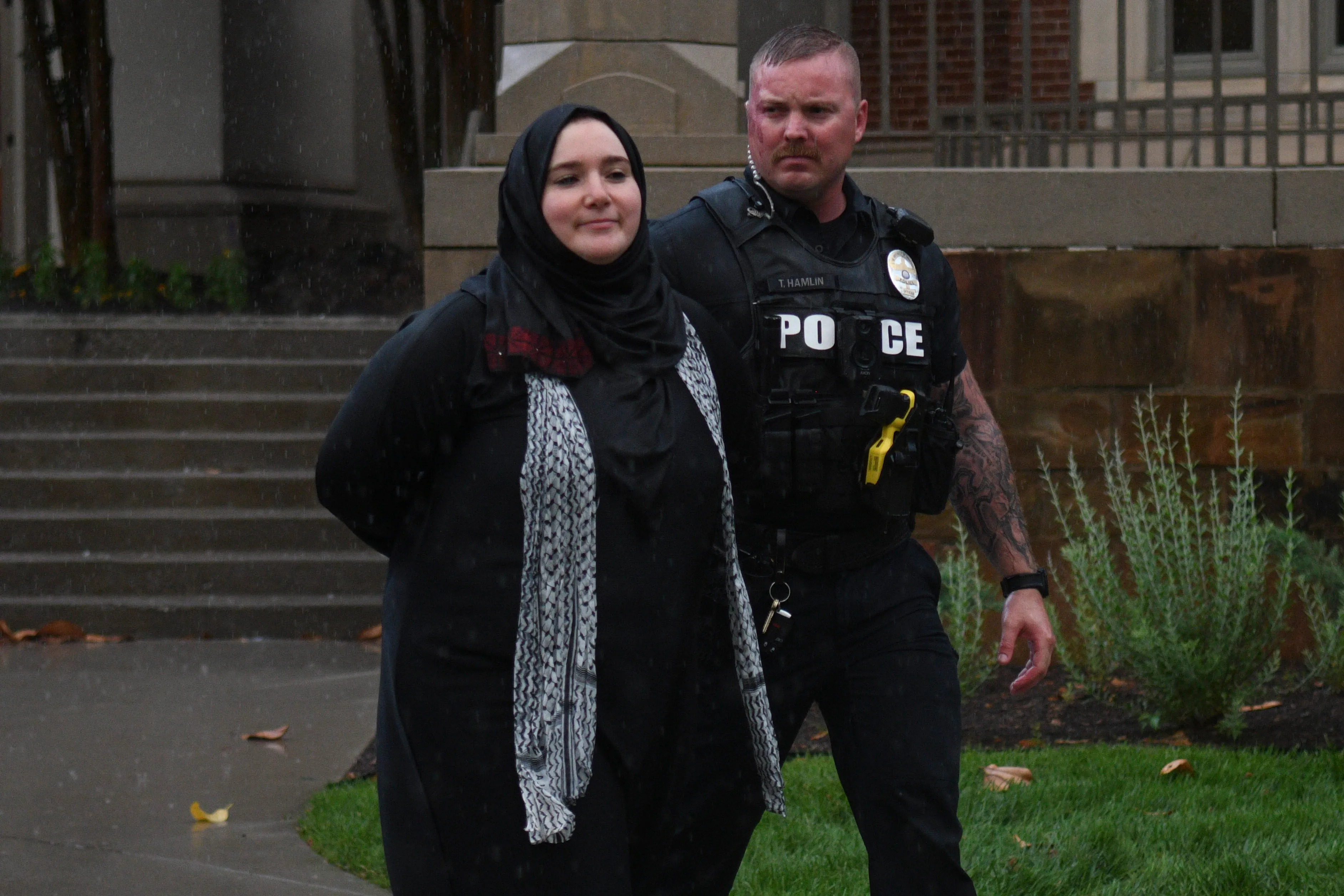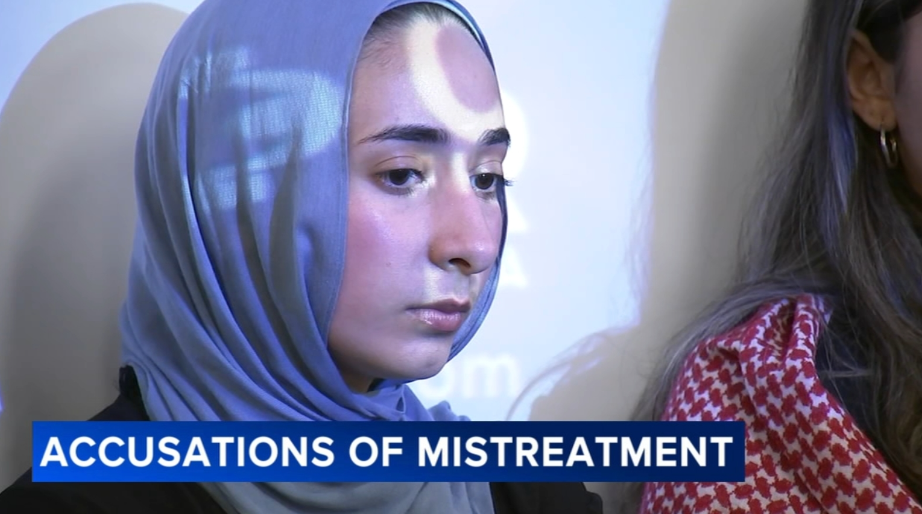Muslim Woman Sues Knox County Sheriff’s Office After Forced Hijab Removal and Publication of Photo Online
This incident highlights a troubling trend as Muslim women across the U.S. face similar violations of their religious rights, raising serious concerns about discrimination and the infringement of First Amendment protections

A Muslim woman has filed a federal lawsuit against the Knox County Sheriff’s Office in Tennessee, alleging that her religious rights were violated when she was forced to remove her hijab for a booking photo that was later published online.
Layla Soliz of Knoxville, Tennessee, filed the lawsuit on Monday following her arrest on May 15, 2024, during a pro-Palestinian demonstration at the University of Tennessee in Knoxville.
The complaint states that, after being detained for several hours, Soliz was taken to the Knox County detention facility, where officers photographed her without her hijab despite her objections. They took a second photo with her hijab, which Soliz wears daily as part of her Muslim faith.

The lawsuit claims, “Requiring an observant Muslim woman to remove her hijab in front of men who are not her family members is humiliating and degrading—akin to requiring a woman to take off her shirt in public.” According to the lawsuit, an intake officer had promised that the mugshot without her headscarf would not be made public.
Still, a sergeant later uploaded the image to the Knox County Sheriff’s Office website, where hundreds of people viewed it.
“The defendants’ mistreatment of Mrs. Soliz and their disrespect for her religious rights has scarred her,” the lawsuit states. The complaint alleges that the photo was downloaded and shared on a third-party mugshot database, violating Soliz’s privacy and religious beliefs.

Soliz’s attorney, Daniel Horwitz, emphasized the legal protections in place, stating, “State and federal law—not to mention Knox County's own booking policy—forbade Knox County officials from violating Mrs. Soliz's religious rights in the way they did.” He added, “We look forward to vindicating Mrs. Soliz's religious rights in court, and we intend to secure a permanent policy change that will prevent further violations like this from happening in Knox County again.”
Soliz is seeking at least $250,000 in damages, the deletion of the mugshot, and a permanent policy change to prevent similar incidents. She expressed her distress over the situation, saying, “I have done my best to practice and uphold, as I said, for many years. So for, suddenly, after all of those years of doing my best to keep that part of my physical self private—to suddenly now have my image without hijab posted online is just really violating and upsetting.”
The lawsuit highlights that Knox County's own booking policy states: “The arrestee's photograph wearing the religious head covering will be the only photograph released and made viewable by the general public.” Despite this policy, the lawsuit claims that after requiring Mrs. Soliz to remove her hijab, Knox County officials published her uncovered booking photograph online.
Communication records included in the complaint indicate that there had been “3 conversations” with Sergeant Jonathan Burgess about how the mugshot should be handled prior to its publication.
This incident is not isolated; it reflects a broader issue faced by Muslim women across the U.S. In 2023, another Muslim woman, Sophia Johnston, successfully sued Rutherford County after being forced to remove her hijab for a mugshot.
In another recent incident, Temple University faced backlash after allegations arose that police used excessive force during a protest on September 26, 2024. Demonstrators, including Muslim student Johara Shamaa, claimed that her hijab was forcibly removed during her arrest, leading to accusations of police brutality and violations of religious rights. Shamaa expressed her distress over the humiliation she experienced, stating, “This act of humiliation left me in a state of distress, feeling as though my fundamental rights had been stripped away from me.”
Legal experts point out that such actions violate the First Amendment, which protects religious practices, and the Religious Land Use and Institutionalized Persons Act.

